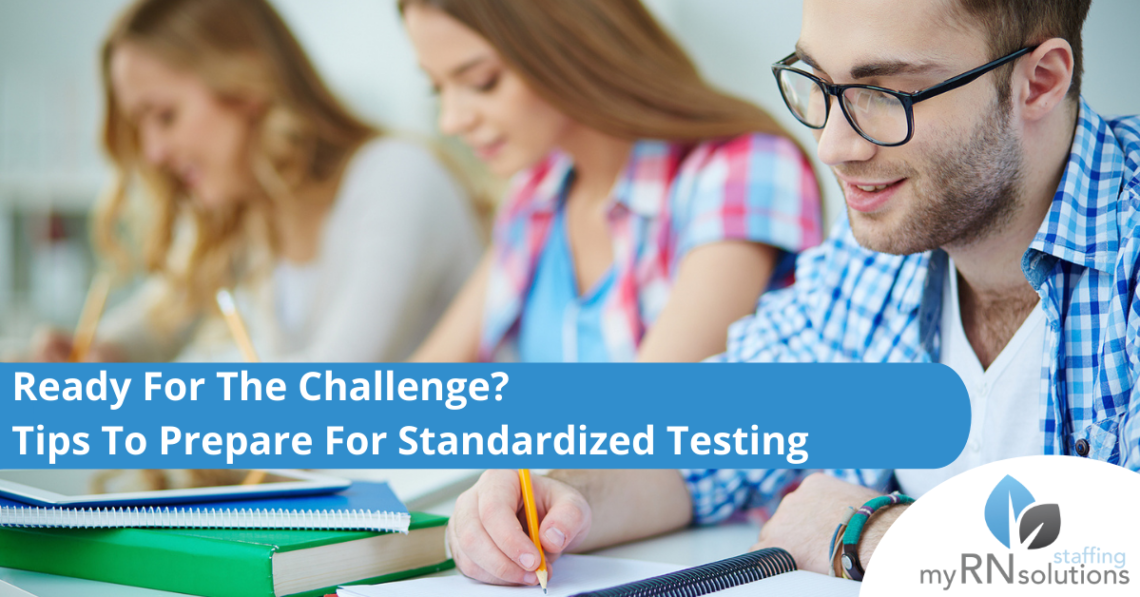
Nursing school has an insane amount of testing. When I used to describe my tests to non-nursing friends, I would have to explain that the questions weren’t simply multiple choice with one right answer: the questions were made up of four right answers with only one best answer. In theory, all four options might make sense, but only one was the most right. How crazy is that? It seriously messes with your brain. Questions like this require you to really know the “why” behind each scenario.
Looking back on the NCLEX and nursing school tests, I can understand the reasoning for testing in this manner. As a nurse, you might find yourself in a scenario with many ways to respond; however, you have to prioritize what is the most important action first, and then work through the next steps. Sometimes, it can be vitally important to make the right choice in a timely manner: patient safety might be in the balance. That’s the theory behind the testing style of nursing exams, but when you’re trying to study for exams like this, it can be extremely frustrating because you need to know the information inside and out.
The NCLEX is only a springboard for future nursing examinations. I just took an exam to be a Certified Diabetes Care and Education Specialist (CDCES) because I spend my days working closely with Type 1 diabetics in clinical research. The options for higher nursing degrees are endless, though, and this is one option of many for nurses. Regardless of whatever exam is on the horizon for you as a nurse, the question becomes: how best can one prepare for these examinations? I’d love to share what works best for me.
Tips to Prepare for Standardized Testing
Research the requirements for the specialty exam you wish to take.
Extra certifications in nursing often require a certain amount of practice hours within that discipline. In addition, requirements might also specify a certain amount of continuing education hours and/or certain schooling degrees. Before you apply to test, make sure you meet all the specific requirements! There might be a possibility of being audited at any time, so you have to make sure that you have documentation of completed requirements in case that happens.
Create a study plan.
When the material seems overwhelmingly extensive, it’s hard to be motivated to study a topic. I sat down in August to plan out the next 4 months, with the goal of taking my CDCES exam in November/December. I find it helpful to start preparing several months from my planned test date, and chip away at the study material slowly, week by week. For me, it’s better to have small goals that eventually lead up to a big goal. Also, it’s very likely you will need to be able to apply your knowledge for years after passing your test, so make sure the information sticks! The best way to do that is to take time to learn the material. It allows you to better retain the information.
Find a mentor or accountability partner.
I prefer finding a mentor – find someone who has taken the exam you have your sights on. They will have so much insight for you to glean wisdom from. They can help provide perspective and encouragement for you. They might be able to offer you practical experience, and enhance your studies all-the-more. For me, it’s motivating to be able to see how my certification might be applied in the future through conversations with a mentor.
Don’t study the day before the test.
If you’ve done your work, you shouldn’t need to cram any information before the test. You should feel confident that you’ve diligently studied over the weeks leading up to test day. Give you brain a rest before it has to do some serious work. Examinations for higher nursing certifications can be hours long, and you want to go into the exam feeling refreshed in your mind.
Map out the route to the test center.
Instead of studying the day before your test, map out how to get to your testing center! It helps you get an idea of where you’re going, and how long it might take to get there. I had to travel the entire length of my capital city in order to get to my testing center, so I made sure I knew what roads and exits to take.
Pack your bag with your testing essentials the day before.
Make sure you have everything you will need for test day in your bag. For me, this meant a valid driver’s license, my social security card, a basic calculator, a snack, and a water bottle. I never trust myself to remember everything on the morning of the test. I ended up forgetting my keys in the apartment on test day, but luckily I couldn’t drive anywhere without them. For good measure, just pack everything the night before!
Get plenty of sleep.
Sleep does wonders. It’s just one more way to make sure you are refreshed and set for test day. Like I said before, examinations require an immense amount of focus and brain power, so try to sleep well the night before the exam.
Leave for the test early.
I was scheduled to start testing at 8:30am, but since I arrived early, I was able to begin testing as soon as I got there. I prefer to do this: why wait around and prolong the inevitable? You may not be like me, but you definitely want to be on time to your test. Testing centers usually have a late policy. For mine, a 15-minute late arrival meant a test cancellation.
Exams and tests in the nursing world can be nerve-wracking, head-crunching, and anxiety-producing. However, there are ways to prepare well for exams, and I hope my list here encourages you that it is possible to enter test day ready for the challenge.

Morgan is a new Nursing graduate living in Boulder, Colorado. She shares her insight and advice on the nursing profession.









Write a comment: